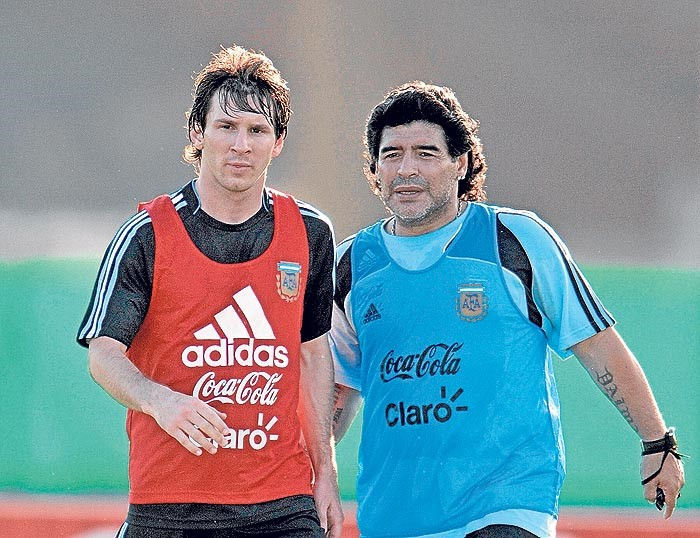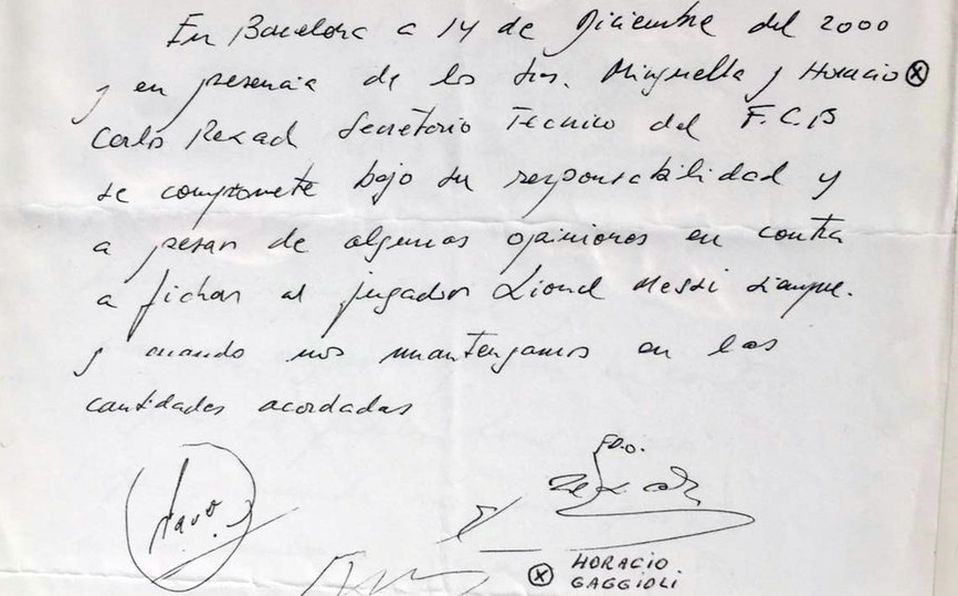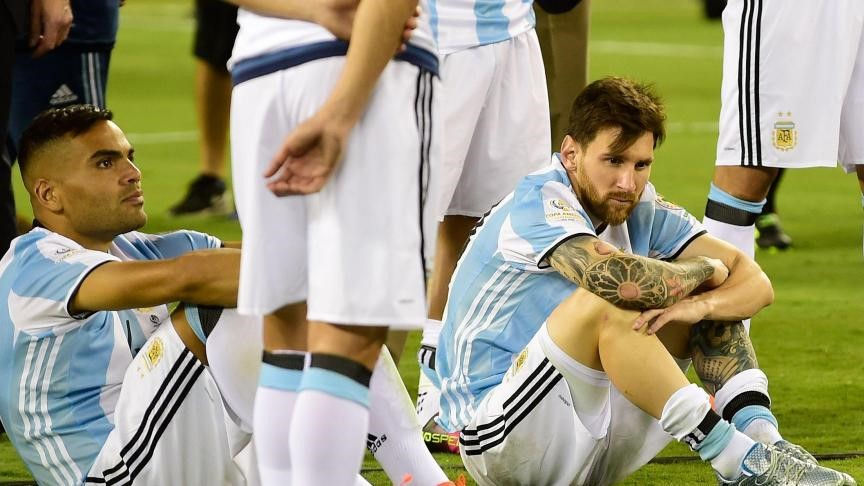The Little Great Messi
- Marcel Courteau
- Aug 13, 2024
- 7 min read
His genes that deprived him of growth did not prevent him from being great
Dr. Schwzarztein is an endocrinologist in the city of Rosario, in the province of Santa Fe, Argentina, who treated cases from the youth divisions of Club Newell's Old Boys.

Among the cases he frequently diagnosed were growth disorders. January 31, 1997, was not an ordinary day for the doctor.
He had received the results of all the tests his patient had undergone. A 10-year-old boy who measured 1 meter 27 centimeters, the normal height for a child two years younger.
The results were conclusive: Growth hormone deficiency, GH.
The doctor knew that there is no greater lie than a misunderstood truth, and that the recipient of the news was a child whose dream was to play football. As always, the consequence of such news is an emotional turmoil that endures.
Knowing that doctors are generally trained with the principle of "primum non nocere," meaning the idea of not causing harm, physical or moral, he followed the communication protocol to avoid betraying himself.
So, the good doctor rolled up his sleeves, methodically organized the medical history and test results, and called his patient and his parents into his office, taking care not to be interrupted.

As he welcomed the family, he could feel the tension of anticipation. The parents on either side and the child in the middle.
The doctor turned to Lionel, noticing he was nervous and silent.
"Lionel, what do you know about what's happening to you?"
"...what the coaches told me... that I should be taller for my age and that I might have growth problems... and that if I don't grow... I won't be able to play football anymore..."
"What I have to tell you is very difficult," the doctor clarified.
"The studies confirm that you have a deficiency in GH hormone.
The lack of this hormone prevents normal growth.
But I can also tell you that there is a treatment that can reverse the situation."
The doctor paused, allowing the parents and Lionel to grasp the situation.
Some time later, the doctor made a comment: Everyone seemed unhappy and worried.
Lio asked me if he would grow enough to become a footballer. I told him:
"Don't worry, with the treatment, you will be taller than Maradona.
I don't know if you will be better than him, but you will be taller than him."

Being challenged in life is inevitable.
GH growth hormone is produced in the pituitary gland, located in the brain, between the eyebrows. From there, it travels to the liver and, at the age when children grow, it stimulates the growth of bones in the arms and legs.
This hormone is much more active at night, hence the famous "growing pains" in children's limbs.
Carlos Marconi, who was in charge of the youth divisions at the club, used to say that everyone went crazy watching "La Pulga" ("The Flea") play. This little boy, who was the smallest of them all, dazzled with his way of playing and his goals.
To motivate him, on certain occasions, when he played against other teams, Marconi would challenge him by promising to give him an "alfajor" for every goal he scored. Marconi said he had to buy him 6, 7, 8 "alfajores" per game.
Every time the match ended, the little boy who had made the team win was by his side at the buffet counter, tugging on his pants to claim his prize.
When he received his prize, he would leave the buffet to join his teammates, with whom he shared the "alfajores."

It was Carlos, with his clinical eye that had seen so many children, who suspected that Lio might have this problem and referred him to Dr. Schwzarztein.
Jorge, Lio's father, talked to him about the test results and the treatment the doctor had proposed. They needed to obtain the medication, which at the time cost over 1000 USD per month, 12,000 USD per year. Something that, in the Argentine economy, very few families could afford.
Thanks to the club and some kind-hearted medical representatives, Carlos obtained what was needed to start the treatment for the first two months.
Genotropin is the medication used to compensate for what the pituitary gland does not produce.
Little Lio quickly learned to administer the hormone by injecting it into his leg.
A different leg each day.

A higher intelligence emerges just when the knees touch the ground.
The treatment had begun, and as the first doses became available, Jorge made an agreement with Acindar, a company he worked for, to pay for the treatment through their foundation. For the treatment to be effective at that point in Lio's life, it could not be interrupted.
In 2001, the "corralito" crisis struck, (a banking crisis where all bank deposits could not be withdrawn by government order), the country was declared in default. There were five presidents in one week, and the country's economic situation exploded. The medication stopped entering the country.
The company stopped paying for the treatment. Due to the crisis, working hours were reduced to avoid shutting down the factory where his father worked. The hormone was in limited supply.
Newell's began paying for the treatment, but soon the help stopped coming. Jorge secured a football trial at River Plate so that Lio could play there, with the idea that the club would help pay for the treatment.
He did not succeed.
By that time, it was already clear that help in Argentina was not going to arrive. In Barcelona, they were already aware. The Messi family managed to secure a trial.
Carles Rexach, a former Barca player in charge of the youth team, saw him on the last afternoon they were in Barcelona. He immediately decided that the player should stay.
But it was not so easy.
Not all the directors agreed with the idea of keeping him.
Barca was not the club it is now, and it was not in a flourishing period. The Messi family returned to Rosario and waited more than two months for the club's decision.
So, to calm them down while the administrative issues were being resolved, on December 14, 2000, Carles Rexach signed the famous napkin with the player's representatives to let the family know that the commitment was real.

After the contract was formalized, the entire family moved to Barcelona. Immigrating is not easy. The older siblings, teenagers, were at an age where adaptation is difficult. The lack of documents, the difficulty in socializing in the new city, and the longing for their customs and people plunged them into depression.
That's why they decided that the mother had to return to Rosario, with the older siblings, leaving Lio and his father alone in Barcelona. Lio had to leave his family, his school, and his friends so that Barca could pay for his treatment.
The club gave his father a job, and in 2001, he signed his first contract as a professional player with Barca.
It took me ten years to conquer what seems priceless to me today: a heart without bitterness. And as often happens, once I overcame the bitterness, I locked it away in one or two books. Thus, I will always be judged by this bitterness, which is now nothing to me. But it is fair. It is the price to pay. —Albert Camus.
Lionel Messi's professional career is marvelous. His countless achievements confirm that he is an exceptional player. It's easy to see this in the Monday morning newspaper.
However, behind the scenes, Lio has experienced failure.
This pain overflows and shoots bitterness from his eyes.
"I thought about it in the locker room, and that's it. The national team is over. It's four finals, and it's not for me. I wanted it, and it's what I wanted the most, but I think that's it."
That's how he mourned his misfortune after losing the final of the Copa America Centenario 2016 against Chile on penalties.
He had just lost in the 2007 Copa America final (3-0 against Brazil), the 2014 World Cup in Brazil (1-0 against Germany), and the 2015 Copa America (also against Chile).

Many letters from fans were sent to him to reconsider... "Do what you want, Lionel, but think about staying. But stay to have fun... and that's what these people have taken from you..." wrote on Twitter an unknown 15-year-old, Enzo Fernandez, who would eventually become his teammate at the World Cup in Qatar..."
Edgardo Bauza, the Argentine national team's coach, and Javier Mascherano, the team captain, met with him. He was absent for only 66 days.
In September 2016, he returned to wear the number 10 and captain's armband, scoring the only goal in the 1-0 victory against Uruguay in that year's qualifiers.
Since then, he has never missed an official match with the national team. In 2019, he was heard saying... "I want to win something with the national team... I will keep trying until the end... And I want to come back, I want to play, and I want to be in important things."
The art of victory is learned in defeat because it has a dignity that victory does not know. This dignity makes everything seem possible for those who refuse to stop fighting. For those who are willing to pay the price.
We have learned from Lionel. That there is no defeat that brings you down when you know you've given everything. That when you let go of everything, you look yourself in the eye and are aware that the only thing left to do is the impossible, and you must do it to the end,
...You can pass to Molinas without looking where he is, between two big Dutch guys...
...You can take Gvardiol for a walk and cross it for Julian to push it into the goal...
...and be there to recover the rebound left by Lloris and score the third goal of the greatest final of all time...
...that no one knows how... but desire makes you find the way.
The Little Great Messi.
His genes didn't want him to grow. His heart made him Great.


Comments